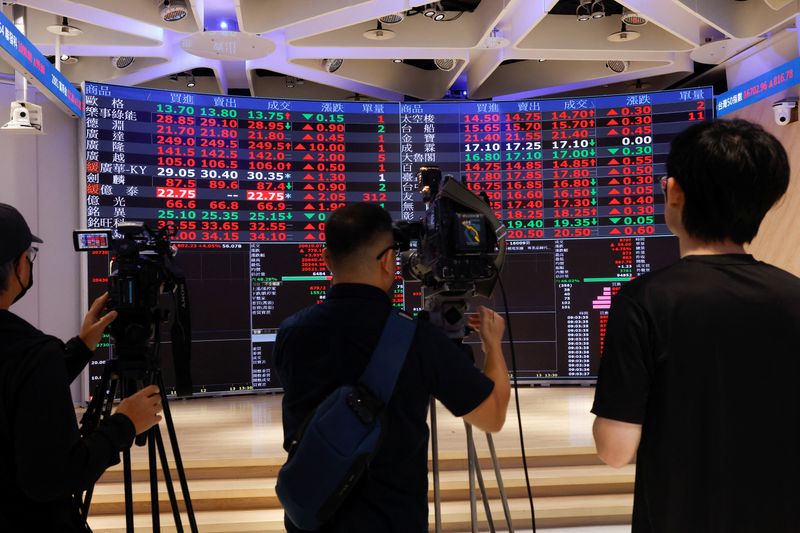Trump win triggered 2024 exit by overseas investors from Asian equities
By Gaurav Dogra and Patturaja Murugaboopathy
(Reuters) - Overseas investors turned net sellers of Asian equities in 2024, primarily due to a surge in selling in the last quarter amid concerns that U.S. President-elect Donald Trump's trade policies might hit Asian economies.
They sold a net $15.8 billion worth of equities in Taiwan, South Korea, India, Thailand, Indonesia, Vietnam and the Philippines last year, after buying $26.6 billion in 2023.
They had invested $14.67 billion in the first three quarters, encouraged by expectations of Federal Reserve easing and regional growth. But they later shifted to accelerated selling, hit by a stronger dollar and higher U.S. yields.
Last year, Taiwan led the region with outflows of $12.4 billion, followed by Thailand and Vietnam with net selling of $4.11 billion and $3.63 billion.
The macro backdrop for Asian equities remains challenging this year, said Timothy Moe, an analyst at Goldman Sachs.
Early-year market headwinds include mixed economic data, rising U.S. 10-year yields and a stronger dollar, along with potential new U.S. tariffs on Asia-Pacific economies, persistently high economic policy uncertainty and geopolitical risks, Moe added.
Higher returns in other markets also pulled overseas investors away from Asian markets last year, with MSCI Asia Pacific index yielding just 7.23% in 2024, much lower than MSCI World 's (MIWD00000PUS ) 15.73% and MSCI United States' < .dMIUS00000PUS> 23.4%.
Trump, who takes office on Jan. 20, has pledged to implement a 10% tariff on all global imports to the U.S. and a 60% tariff on Chinese goods, measures that are expected to affect other Asian exporters due to integrated supply chains with China.
Although Trump's threats could eventually be negotiated lower, "banking on less aggressive tariffs at this stage could seem premature," said Yeap Jun Rong, market strategist at IG, adding: "Inflows may still stay limited for now, until more policy clarity emerges".
"We believe foreign investors will be selective on the markets and sectors as we envisage more divergence across Asian equity market based on their own domestic policy agenda vs. sensitivity to US monetary and trade policies," said Jason Lui, Head of APAC Equity and Derivative Strategy, BNP Paribas (OTC:BNPQY ).
Source: Investing.com
